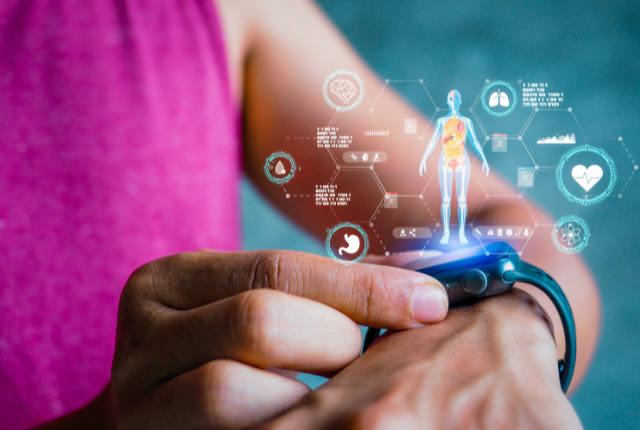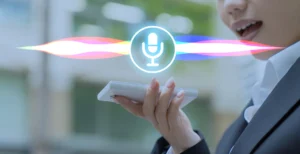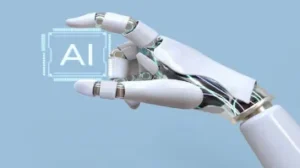One of the biggest changes is that AI is now part of our lives. It’s quietly changing the way we focus on and care for our health. Thanks to AI in smartphones, smartwatches, and other wearables, people can now monitor their health every day without even realizing it. These technologies do much more than just count steps. They can observe behavior, track vital signs, provide health advice, and even detect early signs of illness. AI is no longer limited to hospitals and labs. It’s in your phone, working continuously to help you better understand your body and overall health.
Sleep Better with Smart Analytics
To stay physically and mentally healthy, you need to get enough sleep. AI technology can now use sensors in your phone or wearable to track your sleep. It records how long you sleep, how deep you sleep, how often you wake up, and when you fall asleep and wake up. The AI then gives you suggestions to improve your sleep, such as adjusting your bedtime, reducing screen time, or moving to a different location. Over time, the system can learn to detect if someone is having issues like sleep disorders or insomnia. It’s like having a sleep expert working quietly in the background to help you get more sleep.
Take Care of Your Mental Health and Stress
AI is also a useful tool for taking care of your mental health. AI-powered mood tracking, guided meditations, and breathing exercises are becoming more common in many health apps. These features can tell when your mood is changing by looking at how you interact with others, your heart rate, or your sleep patterns. If your stress levels are rising, the app can suggest taking a break, doing breathing exercises, or going for a walk. Some apps can even tell if you’re feeling anxious or depressed by your typing style or tone of voice. Users can detect micro-stresses in advance so they can take action before they become a big problem. Many people now rely on AI as a daily companion for their mental health.
Keep Track of your Food and water intakes.
Remembering what you eat and drink can be tough, but AI makes it easier. Some apps let you photograph your food, and AI can guess the calories and nutrients in it. Some apps learn your eating habits and suggest healthier meals or snacks based on your goals. AI can also track your water intake and remind you to stay hydrated throughout the day. AI can update your hydration goals based on your activity level or the outside temperature. These smart reminders and notifications can help people eat healthier without having to worry about everything, making it easier to live a healthy life.
Make Chronic Conditions Easier to Manage
AI can greatly assist individuals with chronic conditions such as diabetes, asthma, or high blood pressure. Specialized apps and gadgets can monitor indicators like blood pressure, blood sugar levels, blood oxygen saturation, and more. AI analyzes this information to detect problematic patterns, warn you of potential flare-ups, and make suggestions for managing symptoms. For example, people with diabetes can receive alerts when their blood sugar levels are too high or too low and advise them to adjust their diet or medication. These tools can also help keep track of medications and ensure they are taken as prescribed, reducing the risk of problems. AI is like a personal health butler that helps people track their health.
Remote Health Monitoring Connects with Doctors
AI health monitoring can help not only people but healthcare professionals as well. Many apps now allow people to share their health information with their doctors, making it easier to track their condition and make better choices. Doctors can view medical records remotely, detect problems early, and adjust treatment plans faster than in person. This remote monitoring has proven particularly useful for people with limited mobility or who live in rural areas. AI can collect and aggregate data for healthcare providers, allowing them to focus on diagnosis and care instead of data collection. This makes care more efficient and accurate.
Preventive Health Powered by Everyday Data
One of the most fascinating aspects of AI in healthcare is that it can prevent problems from happening right away. AI can detect early signs of illness by constantly monitoring your behavior and vital signs. It can spot changes in your sleep patterns, activity levels, or heart rate that could mean you’re about to catch a cold, get an infection, or become seriously ill. Some apps even give you a health score or risk assessment based on the most recent data you’ve entered. You can make changes early, like getting more sleep, improving your diet, or getting medical care before a condition worsens. With the AI in your pocket, you can do preventative healthcare every day, not just once a year.
Conclusion
AI is transforming personal health by giving us advanced monitoring and support features that we can access on the devices we carry with us every day. AI-powered health technology is helping people live smarter and healthier lives in various ways, including improving mental health, managing chronic conditions, and sleeping better. Things that used to require a trip to the doctor or a coach can now be done quickly and easily with just a phone or a watch. These tools don’t just record data; they learn, change, and help us make better choices. As AI continues to evolve, it will play an increasingly important role in preventive care, real-time health feedback, and personalized health. The future of healthcare isnot just digital; it’s already within your reach.
FAQs
1. What is AI health monitoring?
AI health monitoring uses smart devices like smartphones, wearables, and apps to track your health, analyze data, and provide feedback.
2. How effective is AI at detecting health issues?
AI is excellent at recognizing patterns and providing early warnings, but it can’t replace a doctor’s diagnosis. AI alerts have helped many users detect issues early.
3. Can AI really help me sleep better or reduce stress?
Yes, many apps use AI to analyze sleep and stress data and provide specific suggestions and exercises to help you sleep better and feel less anxious.
4. Are AI apps safe with my health data?
Most trusted health apps have privacy settings and encryption. Read the app’s privacy policy and only use trusted sources to keep your data safe.
5. Do I need special tools to use AI health monitoring?
Not always. Most smartwatches and smartphones come equipped with sensors and apps that use artificial intelligence to track your health. You don’t need any medical knowledge or fancy tools to get started.



